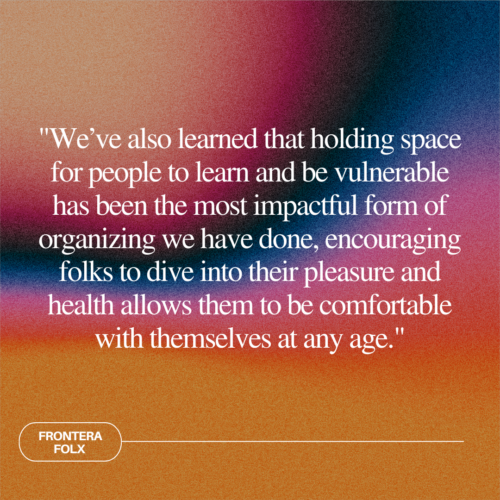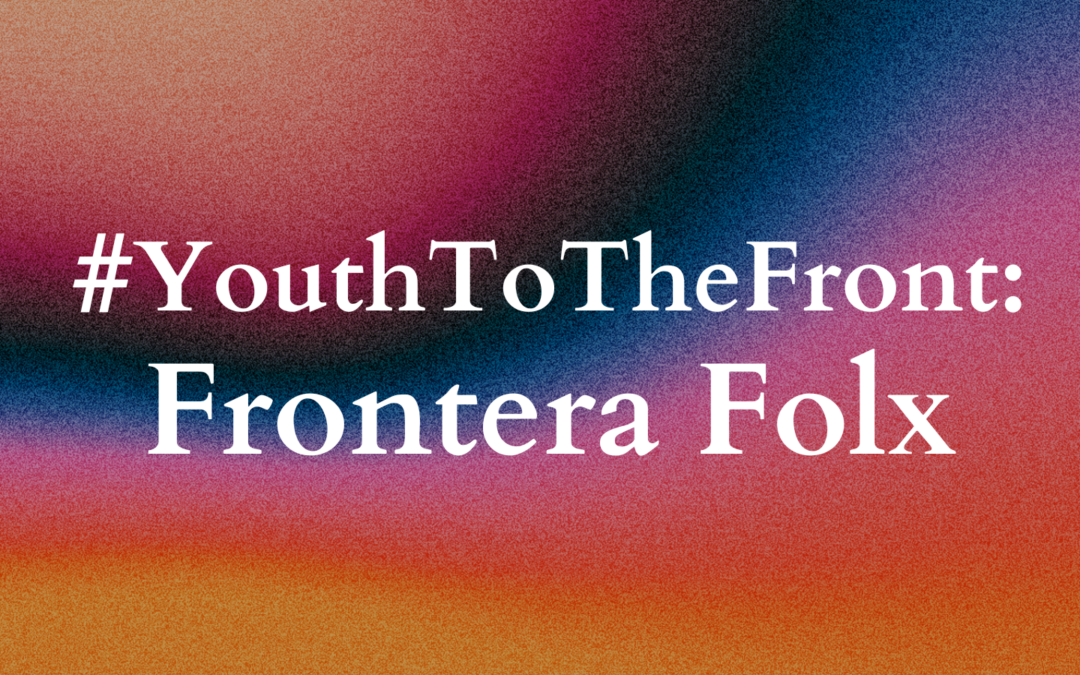Q1. How did y’all meet? And, come together as a group?
We came together after a friend of ours who worked for Planned Parenthood told us they couldn’t be on campus because of Title IX. Because of who our community is made up of middle to lower class, early generations of Latine descendants, we knew how important it was for people to get access to reproductive health services. We found that if we created a student group meant to be an extension of Planned Parenthood, offering contraceptives like condoms, dental dams, pregnancy tests and emergency contraception along with the education to go with it, that’s how we can serve our fellow students.
Q2. West Texas, including El Paso, has been living without regular access to an abortion clinic long before S.B. 8 and Dobbs ruling that overturned Roe v Wade. Can you tell us how you have been educating your community on how they can get an abortion in West Texas for the past few years?
We’ve actually been real about how little access we have. We’ve been lucky to live along the U.S./MX border where people regularly walk across the international bridge to get lunch, visit family and even get medical care. Our other neighbors to the south of us offer abortion care. Now that Roe has been overturned, we’ve really been careful to offer only information and not advice. It’s been harder to do this kind of work in talking about abortion, so we’ve ramped up our education on everything before so folx know how to be as safe as they are able to.
Q3. Y’all have worked on several campaigns – from fighting for comprehensive, LGBTIA+ inclusive sex-ed at the Texas State Board of Education to rallying your community to testify in support abortion of abortion at the El Paso City Council. What campaign has been your favorite?
While we’ve done several campaigns with the Texas Freedom Network and Advocates for Youth, it is really our  work with friends over at Texas Rising, Deeds Not Words, and other organizations in the community that are the driving forces for current and future campaigns. Early on in the making of Frontera Folx, we learned that leaning on other organizations mentioned before and collaborating on events is how we can be intersectional in our work.
work with friends over at Texas Rising, Deeds Not Words, and other organizations in the community that are the driving forces for current and future campaigns. Early on in the making of Frontera Folx, we learned that leaning on other organizations mentioned before and collaborating on events is how we can be intersectional in our work.
Q4. What’s the biggest lesson you’ve learned as youth organizers?
The obvious? This work is hard. But it’s worth it when you see people engaging with you, asking questions, and messaging us wanting to help and be part of destigmatizing sex, contraception and even abortion. We’ve learned that this work is worth it, and when we come together for us, for our families, friends, neighbors and our communities, we can be part of unlearning the harmful upbringings of being poor, Brown, immigrants and hard-core Catholic. We’ve also learned that holding space for people to learn and be vulnerable has been the most impactful form of organizing we have done, encouraging folks to dive into their pleasure and health allows them to be comfortable with themselves at any age.
Q5. What would y’all like to do next as you continue organizing around abortion rights, health, and justice?
Build up our organization. Be in more spaces in our community so we can continue to educate, hand out free resources and continue fighting stigma. As our Courts, anti-abortion politicians and other bad actors continue to plague our state and our communities, we have to be able to fight back with love and care for our community.
Q6. How can people get involved with the work you’re doing in El Paso? And, support your free plan b delivery program?
People can get involved by joining our bi-weekly student meetings at the University of Texas at El Paso. We post the dates and times of our meetings on our Instagram. Similarly, folx can also send us a DM on Instagram telling us they want to be involved. People can volunteer to table at on-or-off campus events or be part of the team that handles Plan B requests.
We always ask for donations to keep our community supplied with safe, fun and healthy sex resources. Folx can donate via CashApp $FronteraFolx.



